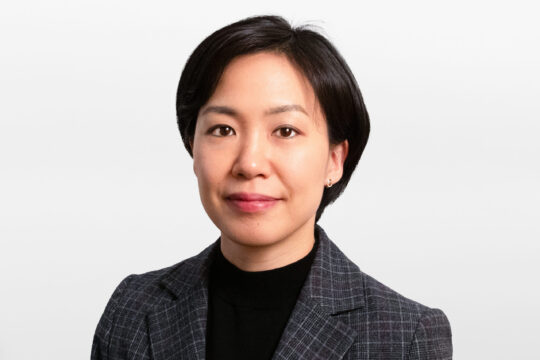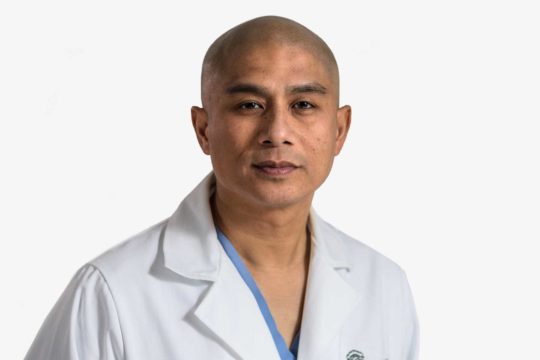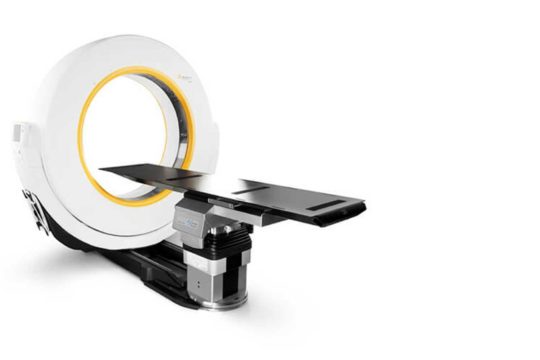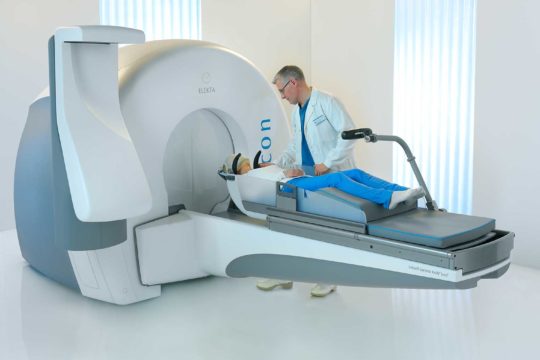Comprehensive Care Centers
Overview
The Center for Endoscopic Skull Base and Pituitary Surgery provides the highest level of care to patients with pituitary tumors, skull base tumors and complex brain lesions, by incorporating both expanded endoscopic surgical techniques and open microsurgical techniques, and by working collaboratively with multi-disciplinary teams across the institution. The mission of the Center, newly established in Spring 2024, is to deliver world-class surgical and medical treatment to our patients in the New England region and beyond, ultimately becoming a regional and national referral center for pituitary lesions, complex cranial tumors, and skull base pathologies.
With the recruitment of fellowship trained skull base surgeons in Neurosurgery and Otolaryngology and a large investment in state-of-the-art endoscopic equipment, we are equipped to perform a wide range of expanded endoscopic surgical techniques through the nasal or oral passages to remove tumors in the pituitary region, skull base, brainstem, sinuses, orbit, cranio-cervical junction, and other regions. While many tumors are treated best through endoscopic surgery, other tumors require an open or transcranial microsurgical approach, or even a combined endoscopic-open approach. All of these surgical approaches are performed at the Center by our expert surgeons. In addition, certain tumors require medical treatment or radiosurgery, and we work closely with our Endocrinology, Oncology and Radiation-Oncology colleagues to provide the safest and most effective treatment tailored to each individual patient.
We have established a Skull Base and Pituitary Tumor Multi-disciplinary Clinic where skull base and pituitary tumor patients can be seen by multiple medical and surgical experts during the same visit, which helps us create comprehensive and well-coordinated treatment plans for our patients. We also have a recurring pituitary conference with endocrinologists, neurosurgeons, neuroradiologists, and neuropathologists, where we review cases and formulate plans through interdisciplinary collaboration.
Our Team
Director
Neurosurgery
Otolaryngology
Basit Jawad, MD – Co-Director
Brian E. Duff, MD
John M. Tarro, MD
Richard Wein, MD
Endocrinology
Geetha Gopalakrishnan, MD
Vicky Cheng, MD
Harikrashna Bhatt, MD
Russell Bratman, MD
Amanda Fernandes, MD
Jasmin Lebastchi, MD
Paul Levinson, MD
Daryl J. Selen, MD
Valerie Thomas, MD
Tonslyn Toure, MD
Oculoplastic Surgery
Michael E. Migliori, MD
Radiation Oncology
Esther Yu, MD
Conditions We Treat
- Pituitary tumor/cyst
- Meningioma/schwannoma
- Craniopharyngioma
- Chordoma/chondrosarcoma
- Sinonasal and brain cancers
- Cranio-cervical junction pathologies
Technology
- Endoscopic Skull Base Surgery with 4K/3D High-Resolution Imaging with ICG Fluorescence
Research
- Development of novel imaging technologies for pituitary adenoma detection
- Surgical outcomes research for expanded endoscopic surgical approaches for skull base and pituitary tumors
- Innovations in surgical approaches for endoscopic skull base surgery
“We have completed hundreds of endoscopic procedures to remove pituitary and associated tumors. We believe this technology leads to safer outcomes and quicker recovery times.”
– Curtis Doberstein, MD
Rhode Island Hospital
593 Eddy Street
APC Building, 6th Floor
Providence, RI 02903
Phone: (401)-444-8806





